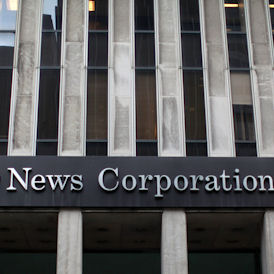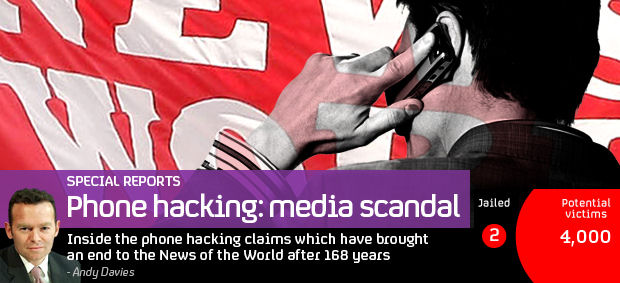Murdoch ‘lacked editorial control’
The failure of News Corporation owner Rupert Murdoch to take editorial control of his newspapers led to an excess of “celebrity gunge” and ultimately the phone-hacking scandal, one Lord says.

Former Conservative Party chairman Lord Fowler said Rupert Murdoch was probably “regretting that hands-off approach” now that his media empire showed signs of unravelling.
Opening a House of Lords debate on News International’s position in the UK media landscape in the wake of Rebekah Brooks’ resignation over the phone-hacking scandal, Lord Fowler recalled the Lords communications committee interviewing Mr Murdoch in New York four years ago.
“He did not exercise daily editorial control. He said if he had, there wouldn’t be the degree of celebrity ‘gunge’ there was in his tabloids. He added that he didn’t understand the interest in Big Brother contestants and, by implication, their private lives,” he said.
I think he might be rather regretting that hands-off approach as his empire shows signs of cracking. Lord Fowler on Rupert Murdoch
“That, he said, was up to his editors. I think today he might be rather regretting that hands-off approach as his empire shows signs of cracking. What has brought it low has been the preoccupation with private lives and private tragedies and the totally unacceptable means one of his newspapers, the News of the World, used to avoid the law.”
His comments echoed former prime minister Gordon Brown’s stinging accusation earlier this week that the News of the World “descended from the gutters to the sewers”, adding: “The tragedy is they let the rats out of the sewers.”
An opportunity to learn for politicians and the Press
Lord Fowler said all political parties should approach the inquiries into the saga with “humility”, aiming to learn from their mistakes. He said the inquiry should also examine media ownership in the UK.
He added: “There has been the most dramatic 10 days in media history that we have just lived through, that certainly I can remember, where the position has been changing hour by hour.
“I think there is a massive opportunity, an opportunity to weed out the criminal and corrupt from British journalism, an opportunity to ensure that the public is properly protected from abuse while ensuring the legitimate role of the press is upheld.”
Politicians from all parties spoke out in the Lords over the phone-hacking scandal, with Lord Prescott – who has been a fierce critic of phone-hacking for some time – saying: “News International may soon become Murdoch Crime International.”
But others in the Lords defended News Corporation.
Baroness Wheatcroft, a former journalist who worked for News Corporation at The Times and The Wall Street Journal, said: “In many years of working for Rupert Murdoch, I never felt under pressure to take a particular line. And I have to say [my writing] was rarely flattering to the Government my employer supported.”
